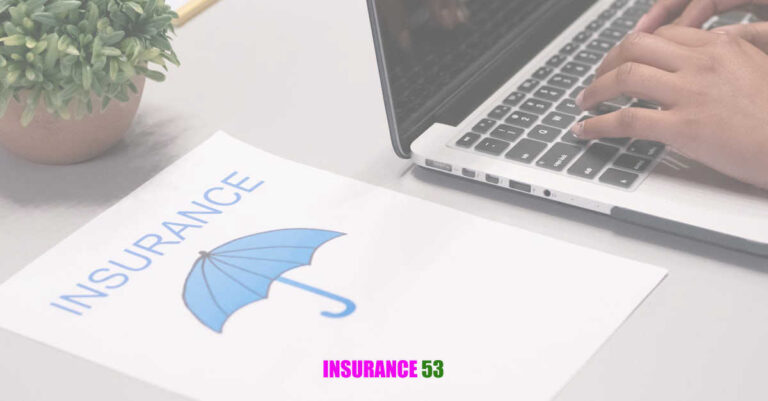Water Leaks: Prevent & Detect Home Water Damage
Water leaks are a common yet often overlooked issue that can lead to serious consequences for homeowners. Whether it’s a minor drip under the sink or a major leak in the roof, household water leaks can result in extensive damage if left unchecked. Detecting water leaks early is crucial in preventing water damage repair costs that can escalate quickly. In this article, we will discuss the importance of leak detection systems and how they can help identify issues before they become catastrophic. By understanding how to spot and prevent leaks, you can safeguard your home from the detrimental effects of water intrusion.
When it comes to issues within residential structures, one of the most critical concerns is the presence of moisture infiltration. This can manifest as various plumbing failures, roof breaches, or even foundational cracks, all of which can compromise the integrity of your living space. Identifying and addressing these moisture problems promptly can save homeowners from extensive repair bills and health hazards associated with mold growth. In this discussion, we will delve into preventative strategies and modern leak detection technologies that can help maintain a dry and safe environment. Understanding these concepts is essential for preserving the longevity and safety of your home.
Understanding Household Water Leaks
Household water leaks can occur due to various reasons, making it essential for homeowners to be aware of the signs and sources of potential water intrusion. The most common sources include plumbing leaks, roof leaks, and leaks around windows and doors. By understanding how these leaks manifest, homeowners can take proactive measures to prevent water damage. Regular inspections and awareness of common leak sources are vital in maintaining a safe and dry home.
Moreover, detecting household water leaks early can save homeowners significant amounts of money on repairs. Implementing routine checks around plumbing fixtures, as well as monitoring your water bill for any unusual spikes, can provide crucial insights into potential leaks. A small drip can lead to mold growth and structural issues if left unchecked, emphasizing the importance of vigilance in leak detection.
Detecting Water Leaks Early
Detecting water leaks early is crucial for mitigating damage and preventing costly repairs. Homeowners should keep an eye out for water stains on ceilings or walls, which often indicate hidden leaks. Additionally, inspecting the areas around appliances regularly, especially those that use water, can help identify leaks before they escalate. Investing in leak detection systems can also aid in early detection, alerting homeowners to unusual moisture levels.
Furthermore, incorporating smart technology can enhance leak detection efforts. Smart water leak detectors can be installed in high-risk areas and provide real-time alerts to your smartphone if they detect moisture. These devices not only help in identifying leaks quickly but also allow for immediate action, potentially saving homeowners from extensive damage and expensive repairs.
Preventing Water Leaks in Your Home
Preventing water leaks involves a combination of regular maintenance and proactive measures. Homeowners should routinely inspect their roofs, plumbing, and seals around windows and doors to ensure they are in good condition. Cleaning gutters and ensuring proper drainage can prevent water from pooling and causing leaks, particularly in the foundation.
In addition to regular inspections, sealing windows and doors with high-quality materials can prevent water intrusion during heavy rains. Homeowners should also consider installing a comprehensive leak detection system that can monitor water flow and alert them to potential leaks in real-time, providing an added layer of protection against water damage.
The Importance of Water Damage Repair
Water damage repair is crucial for maintaining the integrity of your home. When leaks are detected, timely repairs can prevent further deterioration. Ignoring water damage can lead to more significant issues, including mold growth and structural problems that could compromise the safety of your home.
Additionally, addressing water damage promptly can have financial benefits. Homeowners who take swift action to repair leaks and water damage can often save money on extensive repair costs down the line. Investing in professional water damage repair services can also ensure that the work is done correctly, preventing future issues related to water intrusion.
Common Causes of Water Leaks
Understanding the common causes of water leaks can help homeowners take preventive measures. Plumbing leaks are frequent culprits, often resulting from aging pipes or improper installation. Roof leaks can occur due to damaged shingles or poor sealing, while foundation leaks are typically caused by cracks that allow water to seep in.
Moreover, appliance connections can also lead to water leaks if hoses become loose or damaged. Regular maintenance of these areas is essential for preventing leaks. By staying vigilant and addressing potential issues early, homeowners can protect their homes from the damaging effects of water leaks.
The Dangers of Undetected Water Leaks
Undetected water leaks can have devastating consequences for homeowners. Prolonged exposure to moisture can lead to mold growth, which poses significant health risks, particularly for individuals with respiratory issues. Mold thrives in damp environments, and if leaks go unnoticed, it can spread rapidly, leading to costly remediation efforts.
Additionally, undetected leaks can cause structural damage to a home. Water that seeps into walls, floors, and foundations can weaken these critical components, leading to safety hazards. Homeowners should be aware of the potential dangers of undetected leaks and take proactive measures to ensure their homes remain safe and dry.
Water Leak Detection Systems: A Smart Investment
Investing in water leak detection systems is a proactive measure that can save homeowners time and money. These systems are designed to monitor water flow and detect any irregularities that might indicate a leak. Some modern systems even feature smart technology, allowing homeowners to receive alerts on their smartphones, enabling them to take action quickly.
By employing a leak detection system, homeowners can significantly reduce the risk of extensive water damage. These systems can notify you before a small issue escalates into a major problem, providing peace of mind and ensuring that your home remains safe from the damaging effects of water leaks.
Tips for Effective Water Leak Management
Effective water leak management begins with regular inspections and maintenance. Homeowners should routinely check plumbing fixtures, appliances, and the roof for signs of wear and tear. Additionally, monitoring water bills can provide insights into potential leaks, especially if there are sudden increases in usage.
In the event of a leak, homeowners should act quickly to minimize damage. Turning off the water supply, drying the affected area, and contacting a professional for repairs are critical steps. Documenting the damage can also be helpful for insurance claims, ensuring that homeowners receive the support they need to restore their homes.
The Cost of Ignoring Water Leaks
Ignoring water leaks can lead to significant financial burdens for homeowners. The longer a leak goes undetected, the more extensive the damage becomes, often resulting in costly repairs, mold remediation, and even structural repairs. Homeowners may face thousands of dollars in expenses if they fail to address leaks promptly.
Moreover, the long-term effects of water damage can decrease the value of a home. Potential buyers are often wary of homes with a history of water issues, which can impact resale value. By prioritizing leak detection and timely repairs, homeowners can protect their investment and maintain the value of their property.
Frequently Asked Questions
What are common sources of household water leaks?
Common sources of household water leaks include plumbing fixtures like faucets and pipes, appliances such as washing machines and dishwashers, roof leaks from damaged shingles, foundation cracks, and poorly sealed windows and doors. Regular inspections can help identify these leaks early.
How can I detect water leaks in my home?
Detecting water leaks can be done through routine inspections for water stains on walls or ceilings, monitoring your water bill for unusual spikes, and checking around appliances for moisture. Installing leak detection systems can also help catch leaks before they cause significant damage.
What are the consequences of undetected water leaks?
Undetected water leaks can lead to severe consequences, including mold growth, warped floors and walls, electrical hazards, and structural damage. These issues can result in costly repairs and health risks, making early detection crucial.
How can I prevent household water leaks?
Preventing household water leaks involves routine maintenance such as inspecting your plumbing, sealing windows and doors, maintaining your roof, and ensuring proper drainage around your foundation. Regular professional inspections can also help catch potential issues.
What should I do if I find a water leak in my home?
If you find a water leak, turn off the water supply immediately to prevent further damage. Dry the affected area as much as possible and call a professional to assess and repair the leak. Document the damage for insurance purposes.
What are the benefits of installing leak detection systems?
Installing leak detection systems provides peace of mind by alerting you to potential leaks before they escalate into significant damage. Smart water leak detectors can monitor water flow and automatically shut off your water supply, while moisture sensors can detect water presence in critical areas.
How do plumbing leaks typically occur?
Plumbing leaks typically occur due to factors like corrosion, age of pipes, loose fittings, or improper installation. These leaks can be challenging to detect as they often happen behind walls or under floors.
Can roof leaks cause water damage?
Yes, roof leaks can cause significant water damage, especially if they go unnoticed. Damaged shingles, poor sealing, or storm damage can allow water to seep into the attic, leading to mold growth and structural issues.
What signs indicate I might have a foundation leak?
Signs of a foundation leak include water pooling in your basement or crawl space, cracks in your walls or foundation, and increased humidity levels in your home. Addressing these issues promptly can prevent further damage.
Is mold a common issue resulting from water leaks?
Yes, mold is a common issue resulting from water leaks. Prolonged moisture from leaks creates an ideal environment for mold growth, which can damage structures and pose health risks.
| Key Point | Description |
|---|---|
| Common Sources of Household Leaks | Leaks can occur from plumbing, roofs, foundations, and windows/doors. |
| Plumbing Leaks | Often hidden, can occur from faucets, pipes, or appliance connections. |
| Roof Leaks | Can result from storm damage, missing shingles, and poor gutter maintenance. |
| Foundation Leaks | Cracks in foundations allow water into basements or crawl spaces. |
| Window and Door Leaks | Poor seals can let water enter during storms or heavy rains. |
| Consequences of Undetected Leaks | Mold growth, structural damage, warped floors/walls, and electrical hazards. |
| Preventing Water Leaks | Routine inspections, preventative maintenance, and leak detection systems can help. |
| What to Do If You Find a Leak | Turn off water supply, dry the area, call a professional, document damage. |
Summary
Water leaks can lead to severe damage in homes if not detected and addressed promptly. Understanding the various sources of leaks, from plumbing to roofing, enables homeowners to take proactive measures in prevention. Regular inspections and maintenance are crucial in safeguarding against the damaging effects of water intrusion, ensuring a safe and dry living environment.







